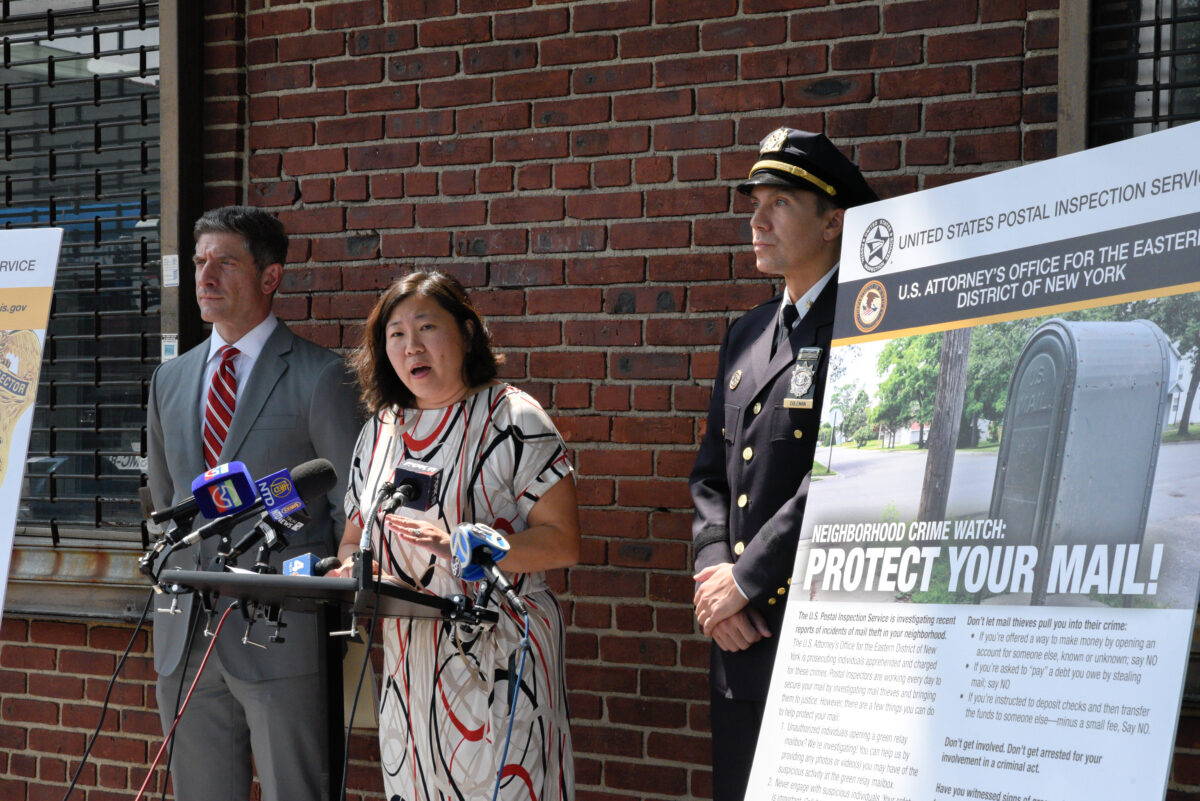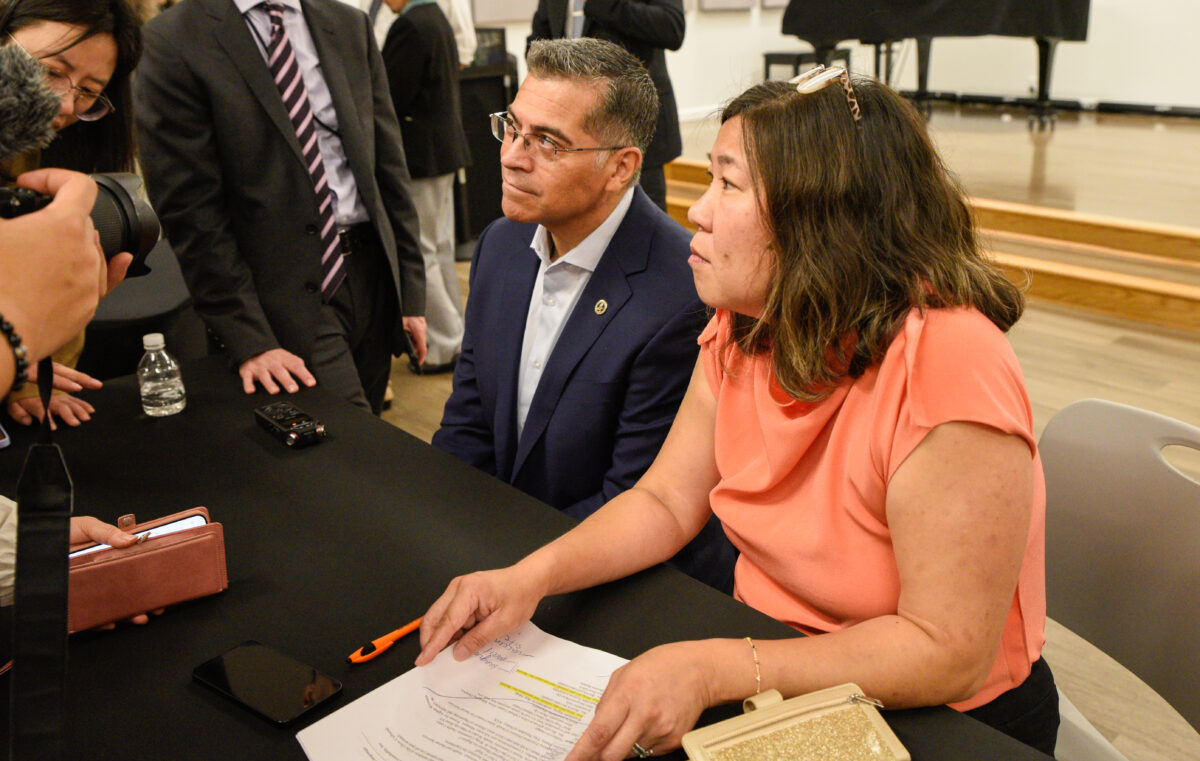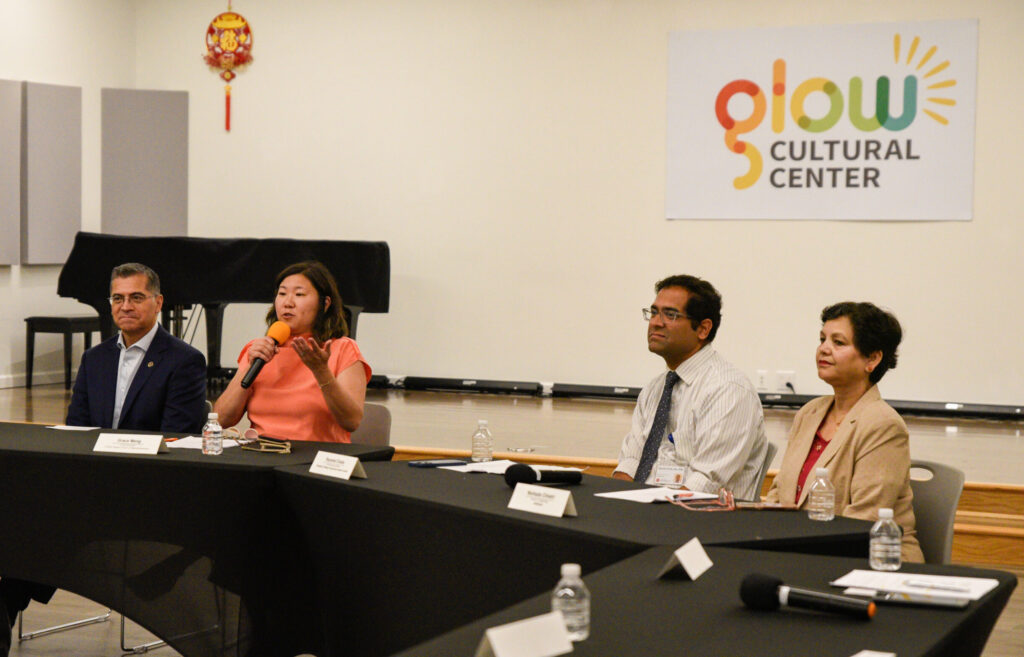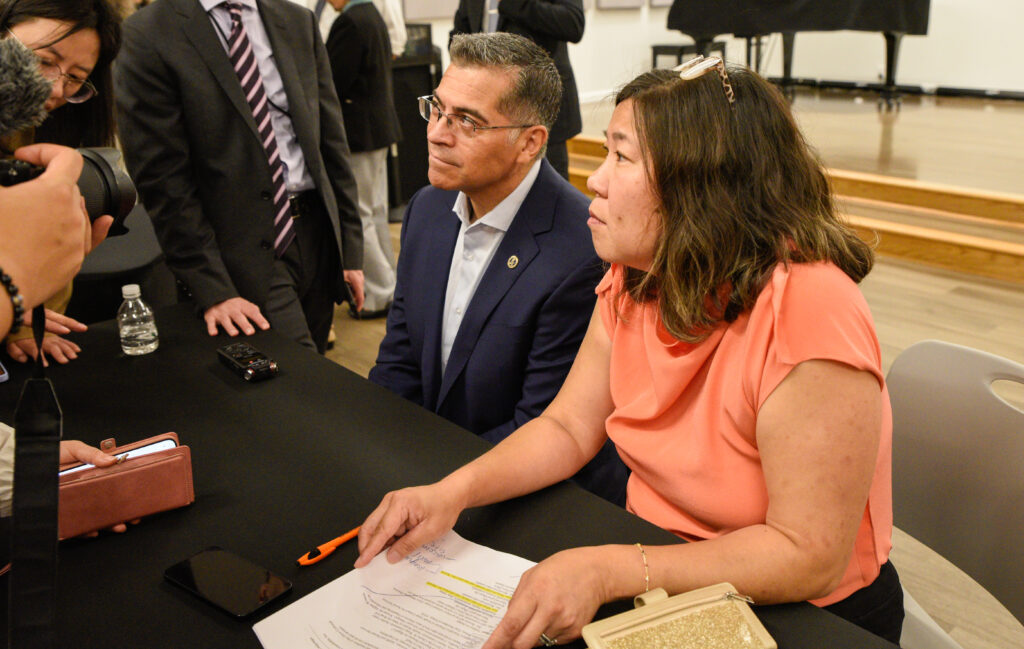Congresswoman Meng Presents Solutions to Thwart Mail Theft
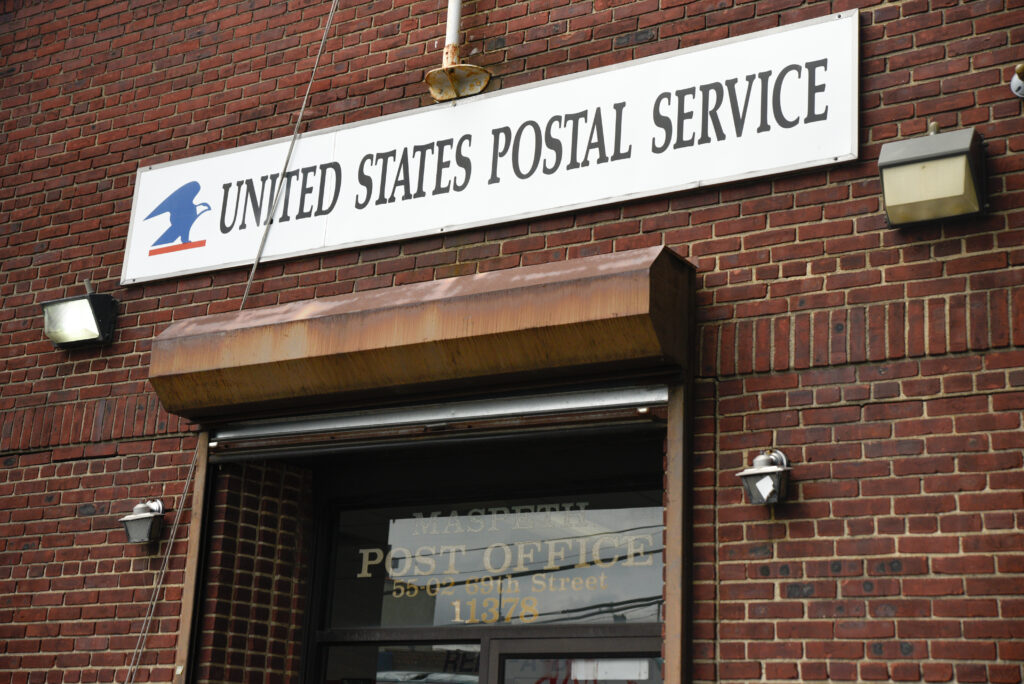
Two mail thieves were arrested less than a mile away from Maspeth’s post office. Photo by Iryna Shkurhan
By Iryna Shkurhan | ishkurhan@queensledger.com
To combat a surge in mail theft, Congresswoman Grace Meng was joined by NYPD’s 104th Precinct and the United States Postal Inspection Service in Maspeth to spread tips on how residents can safeguard their mail.
In June, two mail thieves were arrested on 60th Road and Mount Olivet Crescent for allegedly stealing mail, which was captured on video by a local resident and shared on social media.
“This issue of mail theft is something that our office, and the NYPD and Postal Inspector, have been constantly hearing about,” said Meng outside of Maspeth’s Post Office on 69th St. last Wednesday. “There have been over 600 cases reported this year just in my congressional district alone. And those are just the cases that we have heard about.”
While Meng’s district, which encompasses much of central Queens, has seen growing mail and identity theft, the issue has been prevalent across the nation.
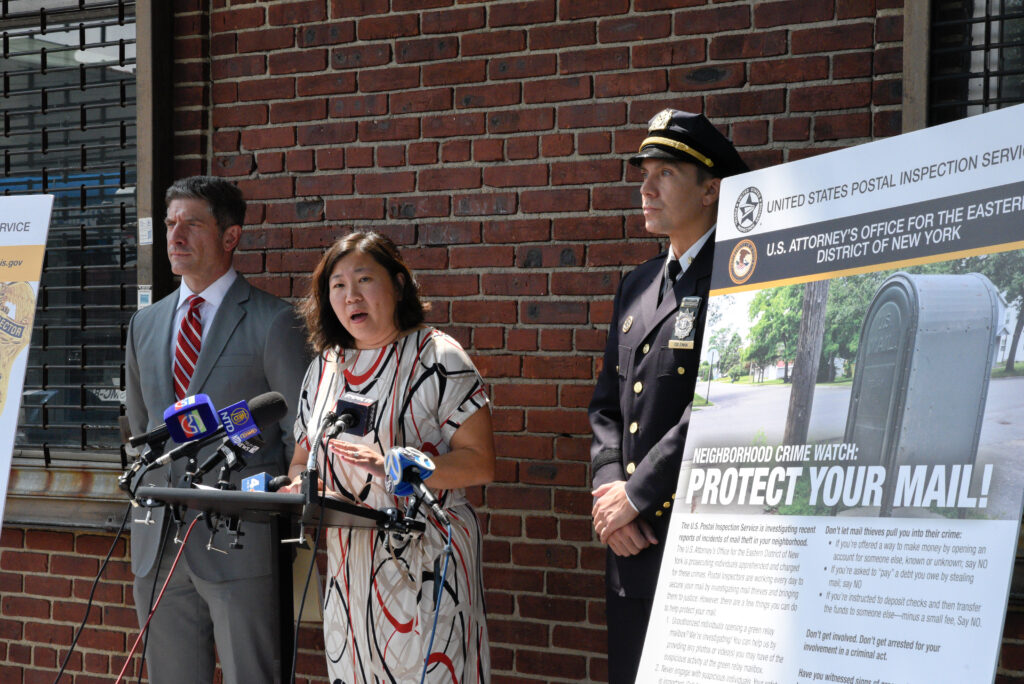
Congresswoman Meng is working with the USPIS and the NYPD to combat the issue. Photo by Iryna Shkurhan
In February, the Financial Crimes Enforcement Network under the U.S Department of Treasury reported that check fraud reports filed by banks nearly doubled to 680,000 from 350,000 in 2021. Some scammers also resort to check washing – erasing the name of the recipient and replacing it with their own name or entity – which allows them to deposit the cash directly into their own bank account.
Mail theft increased by 161 percent from March 2020 to February 2021, according to complaints received by the United States Postal Inspection Service. And over 1,000 arrests have been made since 2017.
John Del Giudice, Assistant Inspector in Charge for the New York Division of the U.S. Postal Inspection Service, announced that over $1.2 million has been allocated in New York to purchase and install high security collection boxes. Nationwide, 12,000 of these new boxes will be installed.
This is not the first time the USPS is having to alter the design of postal boxes to combat mail theft. In 2018, the agency replaced the pull down handle on blue postal boxes with a slender slot with metal teeth after a rise in mail fishing. Meng says that the USPS moved promptly that year to update all the boxes in her congressional district.
“We’re grateful for the Postal Service for making those necessary changes. However, these thieves are getting smarter, and they are getting more creative,” said Meng.
The new target is green relay boxes, which postal workers use to store bags of mail during their route. They are more commonly used in urban areas where carriers walk instead of drive. Letter carriers have been targeted for the key that opens these boxes, which can be copied and used to unlock any green box.
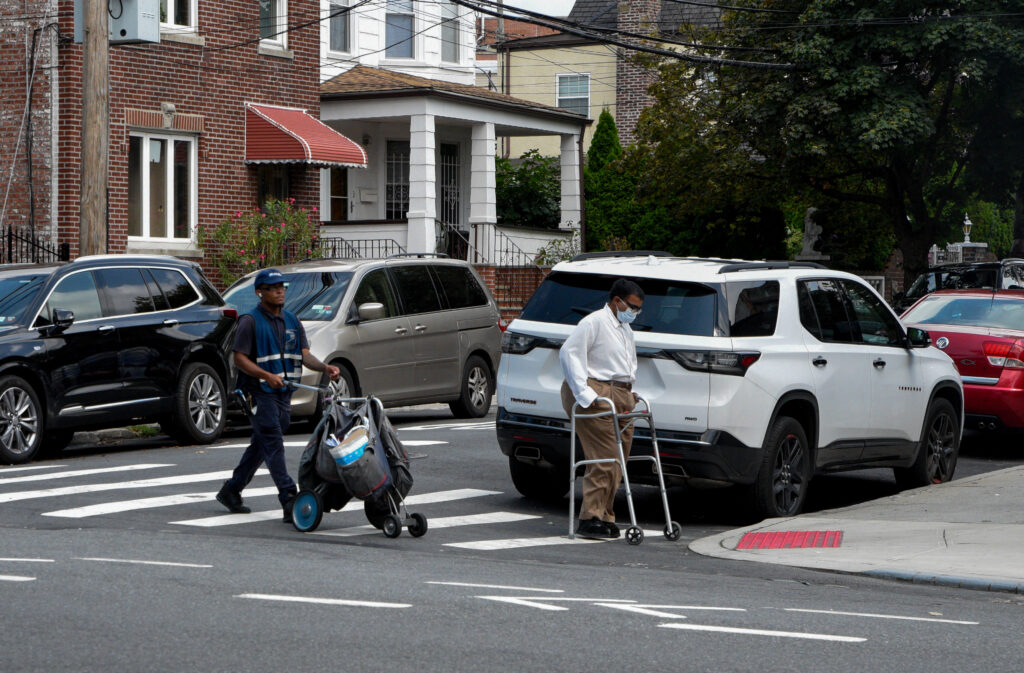
Letter carriers have been targeted for the key which can open any green relay mailbox. Photo by Iryna Shkurhan
The Joint Project Safe Delivery initiative will replace 49,000 antiquated aero locks on relay boxes with electronic locks across the country. Meng says that she has requested that Queens be prioritized in the replacement project due to the high rate of cases in the borough.
In April, Meng also introduced the USPS Subpoena Authority Act with fellow Congresswoman Nicole Maliotakis, who represents Staten Island and a sliver of South Brooklyn. The bipartisan bill seeks to give the USPS more authority to subpoena information about mail theft, including bank records, surveillance videos to build cases against criminal organizations. Currently, the USPS has limited authority to crack down on mail theft syndicates.
Meng relayed that she has received many complaints from constituents who fell victim to mail theft and had important documents, checks and credit card information stolen. Consequently she said that individuals in her district have been scammed out of thousands of dollars and been impacted by other types of financial fraud.
“In 2017, postal inspectors started to see an increase in mail theft and we increased our investigative resources and focused on strengthening partnerships with the NYPD, state and federal prosecutors,” said Giudice. “Our next step is working with the postal service engineers to develop a high security collection box to prevent that.”
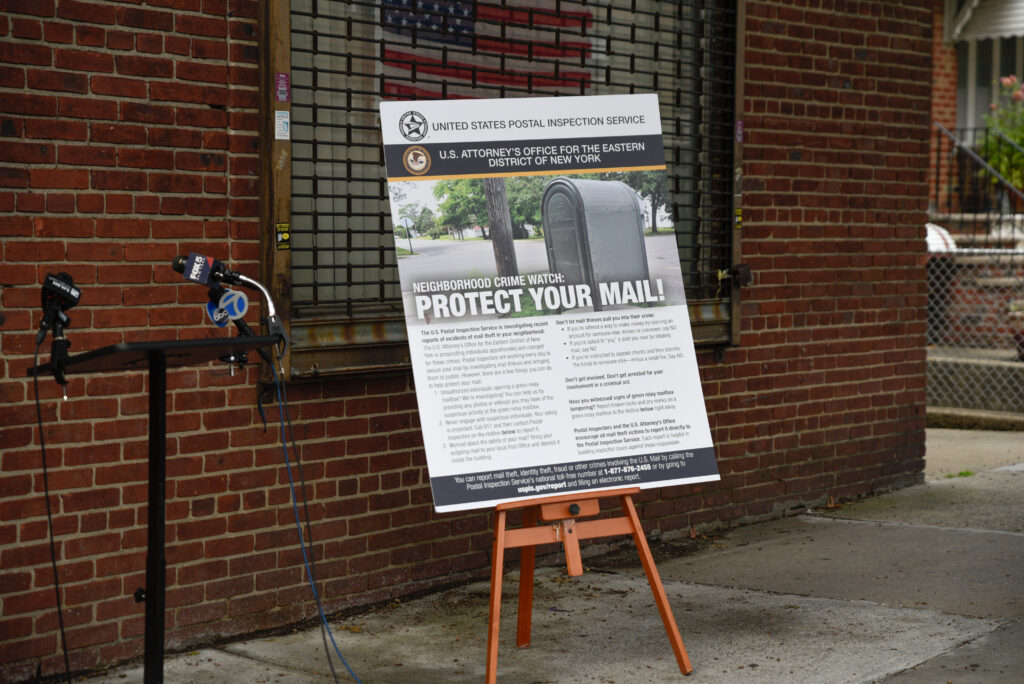
The USPIS is asking residents to follow their tips to reduce their risk of mail theft. Photo by Iryna Shkurhan
The USPIS has also been working to increase public awareness and speed safety tips through social media and neighborhood presentations at community board meetings.
Deputy Inspector Kevin Coleman, the Commanding Officer of the NYPD’s 104th Precinct, briefly shared some tips to safeguard mail. He encouraged residents to avoid leaving mail sitting in their mailboxes as it can significantly reduce chances of being victimized.
Directly depositing mail in blue postal boxes should also be avoided. Instead, he encouraged residents to hand any mail directly to a letter carrier or deliver it inside the post office. If mail must be deposited inside a postal box, it should be dropped as close to the pickup time as possible, which is written on the box. Officials encourage utilizing a permanent ink pen if mailing a check to prevent washing.
Deputy Inspector Giudice also encouraged signing up for informed delivery, a free service which sends a daily digest email that shows what mail and packages are scheduled to arrive so residents can be aware if mail is missed.



